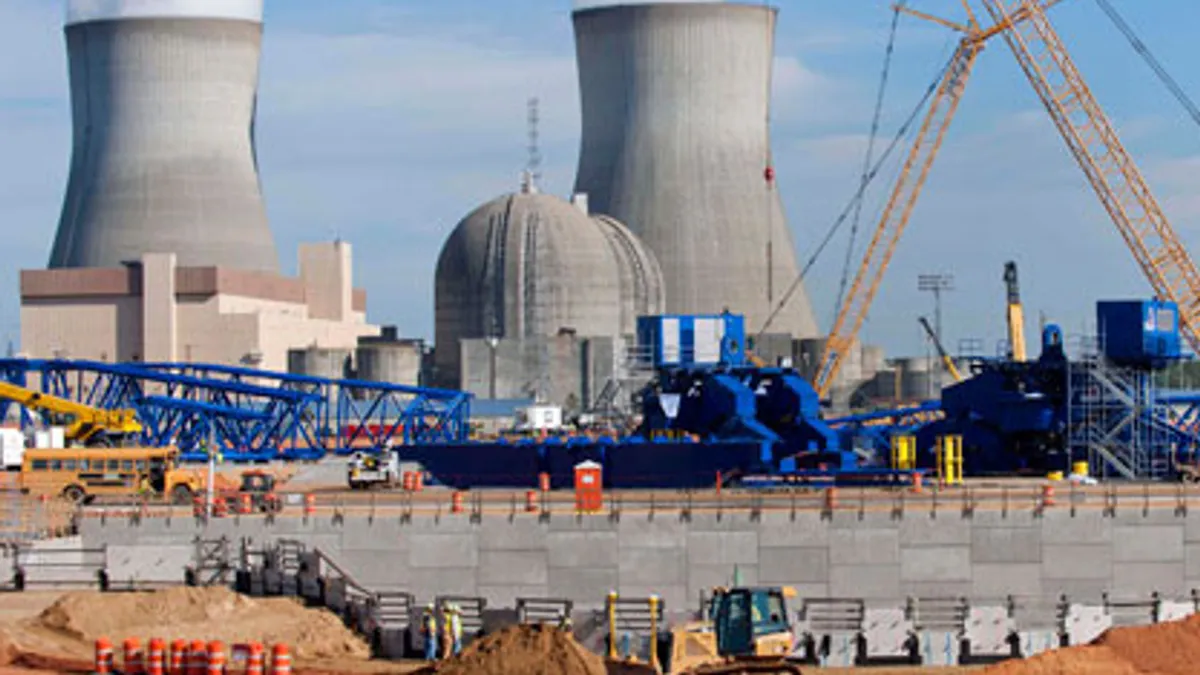Dive Brief:
- The Georgia Public Service Commission unanimously approved a new round of expenses at Georgia Power’s long-delayed Vogtle nuclear plant, amounting to $141 million in the first half of 2016.
- Despite "well publicized setbacks," according to Commission Chairman Stan Wise, the project is still making progress and is within total capital costs of $3.68 billion approved by the commission in 2009.
- But critics say that with the project only about a third complete, now would be a good time to ask hard questions about the plant's future, particularly as the parent company of project contractor Westinghouse has said it is getting out of the nuclear business, and took a $6 billion writedown partially related to the Vogtle project.
Dive Insight:
Georgia regulators signed off on the 15th monitoring report related to Vogtle construction, but while the decision is relatively straightforward, it also comes at a time of turmoil for the delayed and over-budget project.
At the end of last year, regulators also approved an agreement between stakeholders that ensured customers will net $325 million in savings, and cement a deadline of 2020 for the unties to come online. Vogtle has two operating units that have been online since the late 1980s. Once operational, the third and fourth units will produce 2,200 MW of power.
“The Plant Vogtle project continues to make progress despite well publicized setbacks," Commission Chairman Stan Wise said in a statement. "I believe that in the long run this project, when completed, will provide reliable, stable and carbon free electricity for many generations of Georgians."
The PSC's signoff comes the same week Toshiba, which owns a stake in Vogtle contractor Westinghouse, said it would take a $6 billion writedown related to nuclear construction in the United States. Toshiba acquired a majority stake in Westinghouse in 2006, and is managing construction of new nuclear generation at Vogtle and V.C. Summer in South Carolina. Both, however, are years behind schedule and billions over budget.
MIT Technology Review has said the writedown and Toshiba's likely exit from the nuclear business could signal an end to new nuclear construction in the United States.















